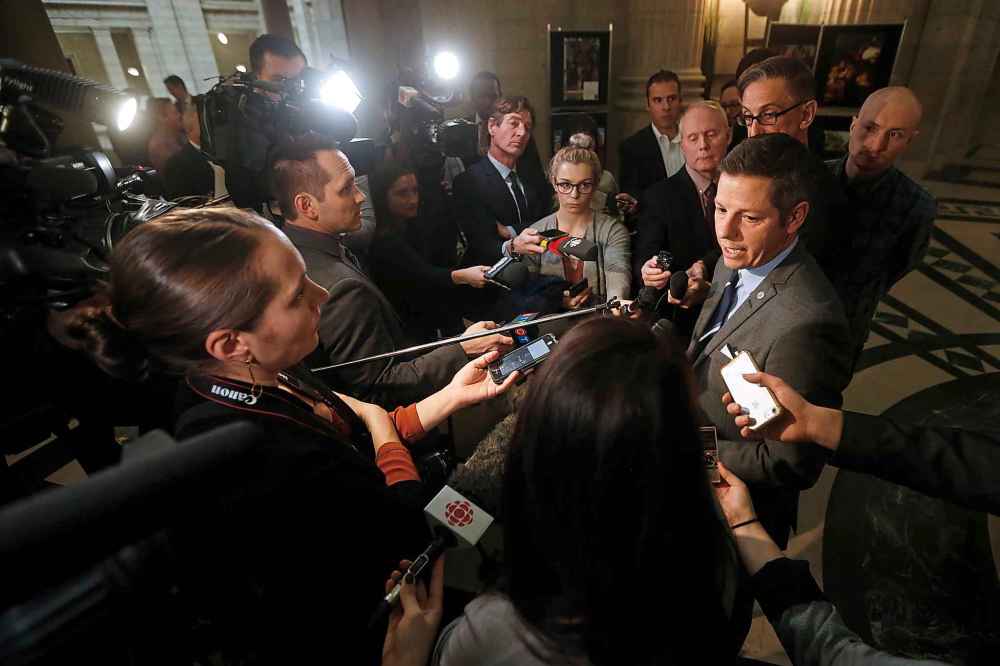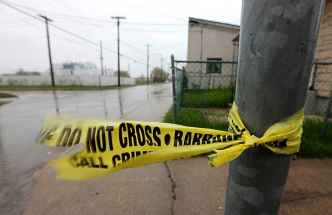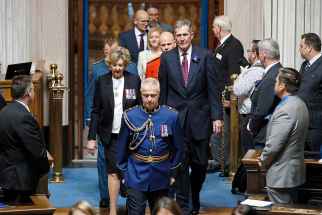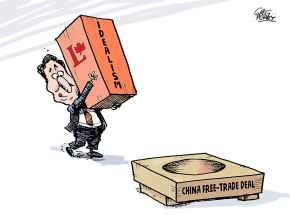Pallister puts gaming expansion on hold, targets health-care waits but ignores meth crisis
Read this article for free:
or
Already have an account? Log in here »
To continue reading, please subscribe:
Monthly Digital Subscription
$0 for the first 4 weeks*
- Enjoy unlimited reading on winnipegfreepress.com
- Read the E-Edition, our digital replica newspaper
- Access News Break, our award-winning app
- Play interactive puzzles
*No charge for 4 weeks then price increases to the regular rate of $19.00 plus GST every four weeks. Offer available to new and qualified returning subscribers only. Cancel any time.
Monthly Digital Subscription
$4.75/week*
- Enjoy unlimited reading on winnipegfreepress.com
- Read the E-Edition, our digital replica newspaper
- Access News Break, our award-winning app
- Play interactive puzzles
*Billed as $19 plus GST every four weeks. Cancel any time.
To continue reading, please subscribe:
Add Free Press access to your Brandon Sun subscription for only an additional
$1 for the first 4 weeks*
*Your next subscription payment will increase by $1.00 and you will be charged $16.99 plus GST for four weeks. After four weeks, your payment will increase to $23.99 plus GST every four weeks.
Read unlimited articles for free today:
or
Already have an account? Log in here »
Hey there, time traveller!
This article was published 20/11/2018 (2575 days ago), so information in it may no longer be current.
The Progressive Conservative government says it will place a pause on the growth of gaming in Manitoba, implement a plan to reduce wait times for certain health procedures and take further steps to combat impaired driving.
In Tuesday’s speech from the throne, delivered by Lt.-Gov. Janice Filmon, the government announced it would also enhance supports for victims of domestic violence with two new pilot programs and introduce legislation to pilot a first-in-Canada family resolution service.
It also promised amendments to The Child and Family Services Act and The Child and Family Services Authorities Act with the goal of helping to keep children and families together.
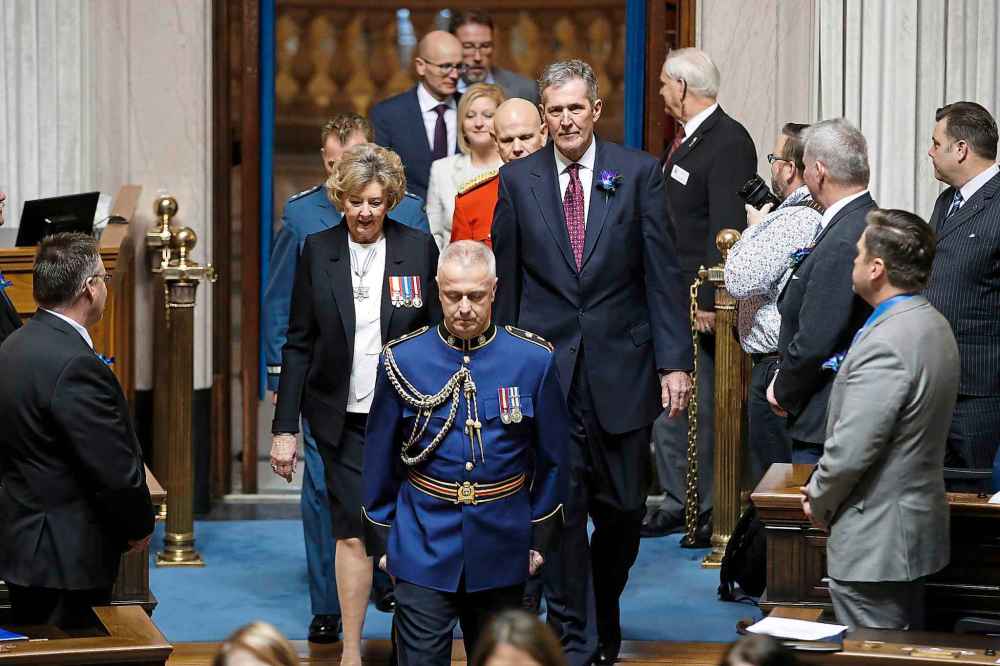
Premier Brian Pallister said expansion of the gaming industry in Manitoba will be halted until the province completes a review of the industry and its impacts.
“We are a province that depends more on gaming revenue than virtually any other,” he said after the throne speech.
Pallister said any review would look at “where and how we do our gambling” in Manitoba. While the industry generates substantial income for the province, there are significant social costs, he said.
He said he couldn’t say when the review will be completed.
“I would expect it will take some time,” he said.
Throne Speech highlights
• The government will produce a new Public Service Act to “reflect the principles, values and needs of a modern Manitoba public service” and “ensure a safe and harassment-free workplace,” aligning rules between government departments and the public service.
• There are plans for a new Referendum Act “to restore the rights of Manitobans to vote on major tax increases and provide a framework for calling and conducting a referendum.”
• Manitoba will have its first Clinical and Preventive Services Plan, to be released next summer. A clinical specialty team “will ensure a strong focus on acute mental health and addictions clinical services.” A complementary Quality, Patient Safety and Accreditation Strategy is also in the final stages of development.
• The government will produce a new Public Service Act to “reflect the principles, values and needs of a modern Manitoba public service” and “ensure a safe and harassment-free workplace,” aligning rules between government departments and the public service.
• There are plans for a new Referendum Act “to restore the rights of Manitobans to vote on major tax increases and provide a framework for calling and conducting a referendum.”
• Manitoba will have its first Clinical and Preventive Services Plan, to be released next summer. A clinical specialty team “will ensure a strong focus on acute mental health and addictions clinical services.” A complementary Quality, Patient Safety and Accreditation Strategy is also in the final stages of development.
• After asking for an external review of the horse racing industry which ultimately recommended more investment, the Manitoba government decided “further expansion of gaming will be paused pending a review.”
• Next year, Manitoba Justice will start reporting annually on recidivism rates, time to disposition offences and custody counts. The government will review The Police Services Act (which is mandatory every five years under the legislation) “to support innovative solutions and improve policing services.”
• The government will “bring forward legislative amendments to allow the safe testing of autonomous vehicles on provincial roads.”
• The province will support two new pilot programs to help victims of domestic violence. The Family Support Worker Program will help those who have been in an abusive relationship navigate family court. The government also plans to introduce plans “to pilot a first-in-Canada family resolution service” in Winnipeg within the next three years.
• There will be new legislation introduced “to better and more efficiently protect Manitobans in the marketplace,” including “protections against unsolicited, high-pressure sales tactics.”
• As part of Manitoba’s 150th anniversary, the government will work with the Hudson’s Bay Company History Foundation to digitize its archives.
• The government will take on “a comprehensive review of petroleum production taxes and Crown royalties,” hoping to simplify the tax and royalty structure.
• Manitoba will move to an “open market” for cannabis with a “streamlined application process” after the initial phase of retail development.
• The government will “make new investments in capital modernization and training to enhance its capacity to assist our agri-food sector” and host a Protein Innovation Summit to promote investment further.
• Over the next year, the government plans to work with the Winnipeg Metropolitan Region “to develop and adopt a regional strategy to improve and co-ordinate land use and development.”
On impaired driving, the government is looking to mirror British Columbia’s immediate roadside prohibition program for impaired drivers. As with Manitoba’s new distracted driving penalties that took effect this month, police officers will be able to suspend impaired drivers’ licenses when they pull them over.
After considerable time studying health-care wait times, the government said it is poised to announce a plan to reduce chronically long waits for joint replacement, cataracts and diagnostic imaging.
The government said it would enhance supports for victims of domestic violence by assisting complainants in navigating the court process. A new Family Support Worker Program will provide “a full range of services” to victims of domestic violence. As well, further programming is promised to “provide meaningful and healthy tools to help (victims) process their experience.”
Meanwhile, the government has promised to open up the retail market for cannabis — as early as the end of this year.
Pallister said the government’s first goal was to make sure all Manitobans had reasonable access to retail outlets. But soon, there will be a lot more opportunities for new stores, he said.
“If you want to start up a store, put in an application,” the premier said.
The government will also push ahead with promised reforms to family law. A three-year pilot project in Winnipeg will offer an alternative approach to the court system for couples who wish to separate, divorce or settle child-custody and other disputes.
“The objective of this new service is to provide timely dispute resolution, and to support healthier, stable, long-term family relationships, reduce mental and physical illness associated with conflict and support family members dealing with domestic violence,” according to the throne speech.
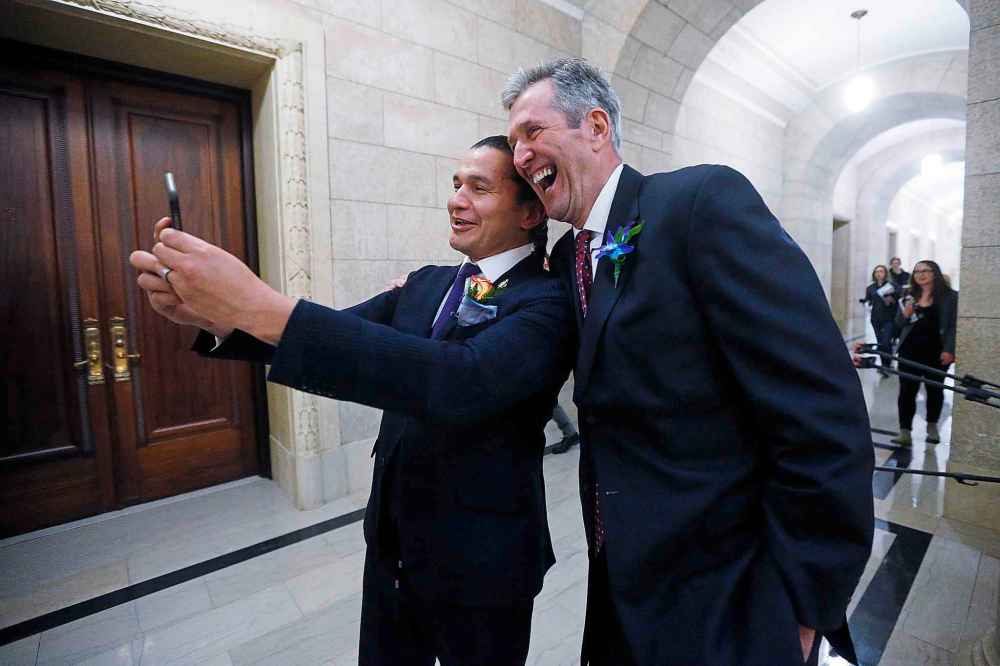
As part of its plans to modernize the criminal justice system, the government said that beginning next year, it will make the system more accountable by requiring annual reports on key measures such as recidivism rates, custody counts and the time it takes for cases to go through the courts.
The PC government’s fourth throne speech was silent on any new strategies to deal with the problem of crystal meth — even though the province’s health minister recently promised further announcements to combat the latest drug scourge.
What others said
Brian Bowman
“Provided their economic development strategies don’t involve the dilution of the effectiveness of Economic Development Winnipeg and don’t minimize the economic engine that we have with the City of Winnipeg, that’s something we’ll obviously work collaboratively to support,” Bowman said.
Mayor Brian Bowman
Bowman said he made three requests of Premier Brian Pallister’s government as it was preparing its throne speech, one of which seemed to have been considered.
First, Bowman wanted the city to get an earlier heads-up on what provincial funding will come down the pipe so it can more easily prepare its own municipal budget. (There was no mention of this idea.)
Second, Bowman wanted more support for the city’s meth crisis (there was brief mention of an increase in drug use, underscoring the need for justice reform). Third, he asked for a greater focus on economic development initiatives between the city and province. The latter suggestion seemed to get some traction.
“Provided their economic development strategies don’t involve the dilution of the effectiveness of Economic Development Winnipeg and don’t minimize the economic engine that we have with the City of Winnipeg, that’s something we’ll obviously work collaboratively to support,” Bowman said.
The government said it in the speech that it wanted to provide tax relief for Manitoba families and the premier later took a dig at the city’s implementation of growth fees.
“Governments have to change their approach and stop going into the pockets of people with higher taxes year after year after year,” Pallister said to reporters.
Bowman wasn’t sure what the premier meant.
“I don’t know if he’s envisioning making it illegal for development cost charges in all of the neighbouring municipalities around the City of Winnipeg, but if that’s what he means, we’ll be interested to be part of that dialogue,” the mayor said.
“What I’d like to see is equity with the City of Winnipeg and the neighbouring municipalities. Right now, the legislative framework is not equitable and is very clear on a few fronts for the benefit of rural Manitoba,” Bowman said.
“What Winnipeggers can’t afford, of course, is just to simply have one level of government balance their budget by simply downloading to another level of government. So we’re going to be quite vocal on that, if that continues.”
Michelle Gawronsky, president of the Manitoba Government and General Employees’ Union
Gawronsky wasn’t singing Pallister’s praises after hearing the government wants to develop a new Public Service Act.
“It’s disappointing to me. This was an opportunity to turn a new page… and to me, he’s failed us now with this speech,” she said.
“When I hear about him trying to open up the Civil Service Act, what exactly does that mean? And when’s he going to start consulting with us? When’s he going to start talking to us about what his intentions are?”
Gawronsky believed the throne speech laid the groundwork for further concentration on cuts to government services and pivots to privatization.
Chuck Davidson, president and CEO of the Manitoba Chambers of Commerce
Davidson said he was pleased to see that the province will soon release the results of an economic review that will inform future economic development initiatives in Manitoba.
An action plan is to be released in the coming weeks that will set out goals and priorities along with a restructuring of the Department of Growth, Enterprise and Trade and its programs.
“We are looking forward to the release of that. What that looks like is something that, we think, is extremely important for all of Manitoba,” Davidson said.
He said he was also glad to see continuing progress on the province’s Look North strategy, which is designed to unleash the economic potential of Manitoba’s north for future generations.
Pallister said more initiatives are coming. “It’s difficult in a throne speech to give the additional detail perhaps you might want to on an issue like this that’s emerging so rapidly,” he said.
The throne speech was also silent on several hot-button issues involving the City of Winnipeg, including transit funding and the size of the province’s annual grant.
The speech did, however, say that tax increases at the federal and local levels “threaten our prosperity.” When asked to explain the comment later, the premier pointed to impact fees on new city homes as an example. He did not indicate whether the province would take any action against the fees.
NDP leader Wab Kinew said he was disappointed by the “very brief mention of meth” in the throne speech and took issue with various topics left out of the speech.
“We only heard a very brief mention of municipalities, but they didn’t talk about giving a fair share to municipalities. We know that that feud between the city (of Winnipeg) and the province has been a major issue. That’s something that was left unaddressed,” Kinew said. “The premier, in this throne speech has not answered clearly whether there’s going to be a court case on the carbon tax. That’s another big looming question.”
Liberal leader Dougald Lamont said the government’s throne speech lacked long-term vision as “everything they do is focused on either the status quo or more cuts.”
“What we’ve said, the most important thing is we need to start getting out ahead of all these problems because we’re spending huge amounts of money dealing with crises because things are too far gone. And that’s true of diabetes, that’s true of meth,” Lamont said.
Meanwhile, Grand Chief Arlen Dumas of the Assembly of Manitoba Chiefs appeared to welcome the gaming review. “The current gaming framework is not working so it’s good to know the province will not be making any decisions at this time as they do have the duty to consult First Nations when it affects us,” he said.
larry.kusch@freepress.mb.ca
jessica.botelho@freepress.mb.ca

Our newsroom depends on a growing audience of readers to power our journalism. If you are not a paid reader, please consider becoming a subscriber.
Our newsroom depends on its audience of readers to power our journalism. Thank you for your support.
History
Updated on Tuesday, November 20, 2018 2:18 PM CST: Adds info about impaired driving.
Updated on Tuesday, November 20, 2018 6:36 PM CST: Writethrough
Updated on Wednesday, November 21, 2018 10:22 AM CST: adds end of missing sentence

